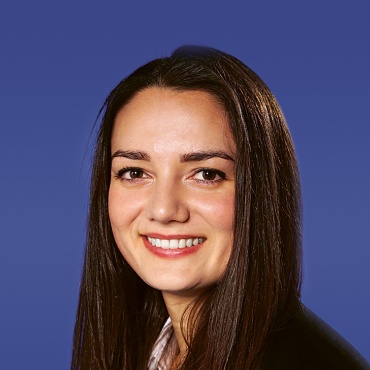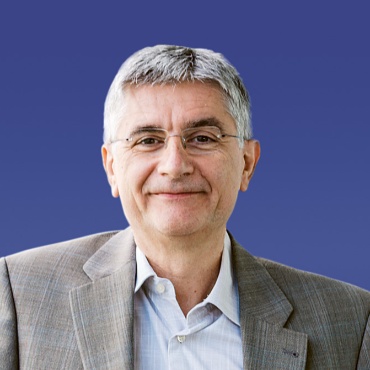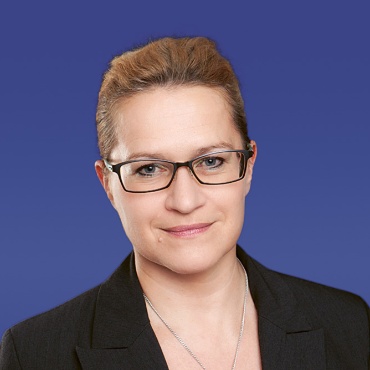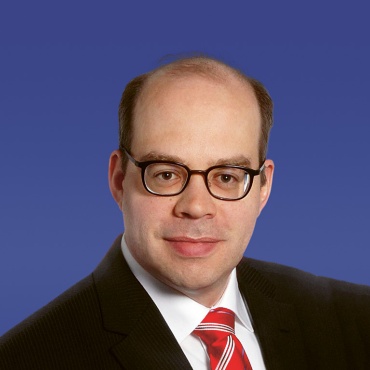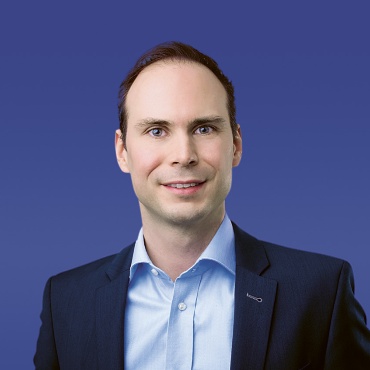
Conducting research into relevant, practice-oriented doctoral subjects, gaining valuable additional qualifications along the way and forging a network of contacts for one’s professional future – that is the concept behind the Graduate School of Excellence Advanced Manufacturing Engineering (GSaME). It was founded in 2007 as a multidisciplinary doctoral program and was the first project to be carried out at the University of Stuttgart under the German federal and state governments’ Excellence Initiative, the aim of which is to form links between cutting-edge research in the field of production engineering and the challenges of an industry in transition.
The participation of partners from the private sector demonstrates the industrial relevance of the research being conducted there. Around half of the projects by doctoral students are completed in collaboration with a company through which they get involved in the development of new processes and products. "The idea is for the doctoral students to provide us with new findings that ultimately have practical applications," says Dr. Martin Lehmann, clarifying the practice-oriented approach of integrating research and development. Lehmann is responsible for the research network at Mann+Hummel, a Ludwigsburg-based filtration specialist, and has developed an appreciation for the collaboration with the GSaME from the perspective of an industry partner.
Statements on GSaME
In addition to working on the scientific subject of their own research projects, doctoral students at the GSaME also take part in an interdisciplinary qualification program. Each research project is supervised by a thesis committee. PhD students also take part in regular status seminars, where they present their research as it currently stands. The program also includes a so-called complementary qualification in a field that had not previously been part of the respective course of study, as well as projects concerned with interdisciplinary issues that promote scientific and interdisciplinary collaboration.
Developing leadership Qualities
It was this breadth of qualification that also convinced doctoral student Katharina Dieterich: "I think it's great that I can continue my education whilst doing my PhD,” she says, “that's a win for me." Dieterich’s doctoral studies are about "Disruptive innovations – the prerequisites for breakthrough innovations, in particular an innovation culture as an enabler for product and process innovations in production networks.” In her opinion, the opportunity to acquire both leadership and routine presentation skills, among other things, as well as to carry out in-depth research represents a great opportunity to prepare for future challenges in the professional world.
The statistic show that the GSaME is functioning successfully: the 100th doctoral student celebrated his graduation in March 2021. Vitali Hirsch earned his doctorate in collaboration with Daimler AG on "The data-driven identification of potential quality problems in complex assembly products." In excess of 550 scientific articles based on the research carried out at the GSaME have been published in journals or at conferences since 2007. GSaME graduates are currently participating in five spin-offs and 35 patents and patent families have been filed. It almost goes without saying, therefore, that the program has no trouble in recruiting interested participants.
"We not only want to train excellent scientists,” says Dr. Thomas Ackermann, once a GSaME participant and now its scientific coordinator, “but we also want to train tomorrow’s decision-makers." To achieve this, the Graduate School intends to place even more emphasis on teaching social, leadership and methodological skills than it already does.
Numerous companies, including some from the automotive industry, as well as plant engineering and special machine construction firms and those working in the field of semiconductor technology, have already come to recognize the appeal of collaborating with the GSaME. Martin Lehmann from Mann+Hummel sees the dual qualification in technical and management knowledge as one the GSaME’s great benefits – for his company too. As they work in project teams within the companies, the doctoral students, with their eye for scientific detail, have been able to provide many interesting new insights. "The participants often introduce an entirely new set of perspectives."
As Prof. Bernhard Mitschang, spokesperson for the GSaME, explains: "The GSaME enables companies to screen potential new employees at an early stage.” At the same time, he continues, the graduate program has created a strong network between the five participating University of Stuttgart faculties and the various partner companies. Many of the doctoral students establish lasting contacts among their own numbers: the GSaME Alumni Association currently has over 100 members.
For many of the doctoral students, participation in the GSaME also serves as a springboard into a professional career. "In general, graduates who work on the collaborative projects are subsequently retained," says Dr. Gabriele Erhardt, executive director of the Graduate School. The rate has dropped slightly since the outbreak of the Covid-19 pandemic, she continues, but industry support for the program continues undiminished. According to Erhardt, the pandemic has actually had some positive effects in other ways: "We currently have the highest publication rate per doctoral researcher since the GSaME was founded. Many new patents have also been filed."
Mann+Hummel also views the GSaME participants currently deployed within the company as talents for the future, as Martin Lehmann explains. The Ludwigsburg-based company has hired five doctoral students from the Graduate School in recent years. "These included people with special technical qualifications that were otherwise lacking within the company," says Lehmann, citing a further benefit. Several graduates have subsequently found a job within the company, although this is never a guaranteed outcome. "We're always happy when there’s a good fit – if not, these people leave as highly trained individuals.”
Editor: Jens Eber
The GSaME in figures
The GSaME is home to over 30 professors working in the faculties of design, production and automotive engineering, energy, process and bioengineering, economics and social sciences, computer science, electrical engineering and information technology, aerospace engineering and geodesy. The Graduate School is organized into six research clusters that combine the traditional production-related subjects with IT, management and sustainability. Together, the directors of the six clusters form the GSaME’s Board of Directors. The principle of a dual doctorate that has been realized in the GSaME was so groundbreaking in its development that the Graduate School received funding under the German federal and state governments’ Excellence Initiative in 2007 and 2012. Having received twelve years of funding the program has been receiving support from the state of Baden-Württemberg since 2019.


